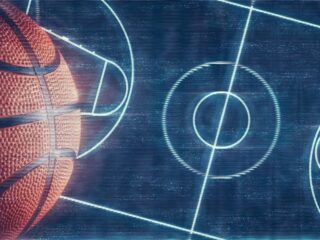
Welcome to my blog! I’m here to talk about one of the most controversial topics in basketball: flopping. You may have seen players on TV falling to the ground after minimal contact and wondered what the heck they were doing. Well, that’s called flopping and it’s a strategy used by some players to fool the referees into calling a foul. But is it really effective? And is it fair? Let’s discuss!
What is a flop in basketball
In basketball, a flop is an intentional fall by a player after little or no physical contact by an opposing player in order to gain an advantage, usually by drawing a personal foul call. Flops are often colloquially referred to as “acting” or “sold” fouls. The act of flopping is often used in European football ( soccer ), as well.
How to avoid flops in basketball?
In basketball, a flop is an intentional fall by a player after a minor physical contact in an attempt to draw a personal foul call by the opponent. The tactic draws considerable criticism from analysts and peers because of its role in disrupting the game flow and “tricking” the officials. Flopping is generally considered unsportsmanlike and one of the most hated strategies in basketball.
The benefits of flopping in basketball
Flopping in basketball is when a player falls to the ground after being slightly touched by an opponent. It is often used as a tactic to draw a foul against the opposing player. Although it is not explicitly allowed in the rules of basketball, it is not considered cheating.
There are several benefits to flopping in basketball. First, it can be used to disrupt the rhythm of the game and slow down the pace. Second, it can create confusion and chaos among the players and spectators. Finally, it can be used as a strategy to get free throws or other benefits for your team.
When done correctly, flopping can be an effective tactic in basketball. However, it is important to be aware of the potential risks associated with flopping. These include earning a reputation as a “flopper,” which can make it difficult to get calls in your favor in future games. In addition, if you are caught flopping by the referees, you may be called for a technical foul or even ejected from the game.
The downside of flopping in basketball
Flopping has been around the NBA for years, but it’s come into sharper focus in recent seasons. The practice is generally considered to be a way for players to manipulate the officials into calling a foul on an opposing player.
There are a few reasons why flopping might be beneficial to a player. For one, it can help them draw a foul against an opponent, which can put them at the free throw line where they have a chance to score points. Additionally, flopping can help players sell calls to the officials and get opponents in foul trouble.
However, there are also some downsides to flopping. First and foremost, it’s considered to be unsportsmanlike conduct and it can result in players being fined or suspended by the league. Additionally, flopping can backfire if officials aren’t fooled by the act and instead give the player who flopped a technical foul.
How to tell if a player is flopping in basketball
A “flop” in basketball is basically when a player fakes being fouled in order to get the ref to blow their whistle. This is considered unsportsmanlike behavior and can result in a player being given a warning, or even being ejected from the game.
There are a few telltale signs that a player is flopping, which include:
-The player falls to the ground without any contact from another player.
-The player dramatically throws their arms up in the air as if they’ve been fouled.
-The player writhes around on the ground as if they’ve been seriously injured.
Flopping is generally frowned upon by fans and players alike, as it takes away from the competitive nature of the game. However, some players have been known to use it to their advantage, so it’s something to be on the lookout for when watching a game.
Why do some players flop in basketball?
There is no one answer to this question as there are a variety of reasons why players may choose to flop during a basketball game. Some players may do so in order to fool the referees into calling a foul against the opposing team, while others may do it in an effort to get an advantageous position on the court. Still others may simply be trying to sell a call to the referees. Whatever the reason, flopping is generally seen as an unsportsmanlike move and is widely condemned by fans and players alike.
Is flopping in basketball ever a good idea?
Flopping in basketball is when a player intentionally falls to the ground in order to get a foul called on the other team. It is considered a form of cheating and is not looked upon favorably by most basketball fans or players. There are some situations, however, where flopping may be the best option for a player. For example, if a player is being fouled hard and there is no chance of them making the shot, they may decide to flop in order to prevent themselves from being injured.
What are the rules regarding flopping in basketball?
In basketball, a flop is an intentional fall by a player after a minor physical contact in order to gain an advantage or make the referee call a personal foul. flopping is considered a type of cheating, and it can result in a warning, or even ejection from the game.
The rules regarding flopping vary by basketball league. For example, in the NBA, a player who flops twice in the same game can be given a warning, and any subsequent flops will result in a technical foul. In international competitions like FIBA and EuroLeague, repeated flopping can result in a player being banned from the game.
Flopping has become increasingly common in recent years, as players have become more strategic about how to draw fouls. Some argue that the increase in flopping is due to the popularity of European basketball players in the NBA, asflopping is more common in European leagues. Others argue that it is simply a product of players becoming more savvy about how to get an advantage on the court.
Whatever the reason, flopping has become one of the most controversial issues in basketball today. Some argue that it is ruining the sport, while others believe that it is simply part of the game. What do you think?



